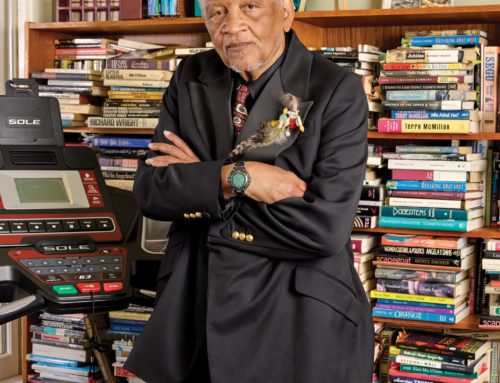GOD PLEASE FUCK MY MIND FOR GOOD snarls the disquieting music in the rather sinister nightclub Neusohl near the end of Through the Night. EVERYTHING’S BACKWARD! EVERYTHING’S BACKWARD! the song urges. Our narrator, Karl Christian Andreas Meyer, a fractured, grief-pierced family man, is here to get the key to the house where “hope turns to dust.” In reversal of the typical quest story, Karl is questing for pain, a long-desired punishment for his familial betrayals which he believes led to his son’s suicide. This house is where you’ll be confronted with your greatest fears, where cocky, self-assured men are carried out, turned into babbling ruins and devastated by what they’ve seen. Karl hopes to see his son once again. As we’re told, punishment is a sort of medicine.
Equal parts fantasy, horror, and domestic drama, Through the Night is Stig Sæterbakken’s final novel. Compared to the other two translations of his work Dalkey Archive Press has published, Through the Night is downright baggy narratively and straightforward. The other two, Siamese and Self-Control, are taught, claustrophobic novels, pushing against the smallness of the lives of their characters, with very little in the way of backstory. In fact, Self-Control reveals so little of its protagonist’s history that when it does in its final sentence readers are confronted with near-total reassessment of whose story they have been following. Although Through the Night touches on familiar themes in Sæterbakken’s work—grief, loss, isolation—it spreads out. It’s a confident and spacious novel, with a narrator seeking a kind of genealogy of guilt while limning his own stratums grief.
Click here to read the article at Numéro Cinq and click here to read an excerpt from Through the Night.


